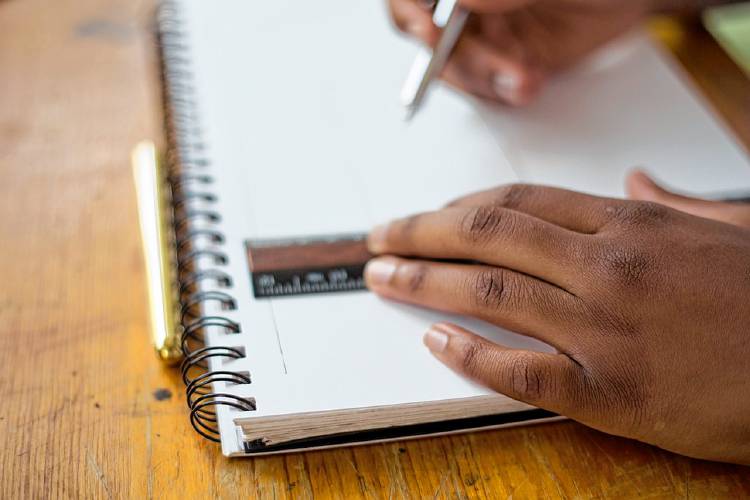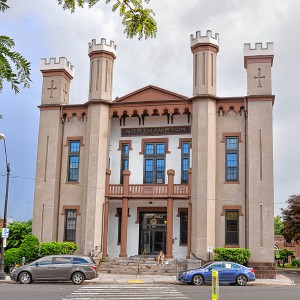Poll finds gap in parental expectations about college

student, classroom, pixabay, "I think we can all agree that fifteen, five-minute videos and a multiple-guess test will not prepare students for making financial decisions," writes Corrow. Courtesy
| Published: 11-26-2023 6:00 PM |
BOSTON — There are significant gaps in the expectations parents have for their children’s futures after high school, divided sharply by race and income demographics, according to poll results released earlier this month.
The statewide poll of Massachusetts parents with children in grades 6-12, conducted by MassINC Polling Group for The Education Trust in Massachusetts, found that over half of parents (57%) said their child is interested in pursuing a bachelor’s degree after high school — but that there was much higher expectation among white and Asian parents than those who are Latino.
Asked if their children would like to attend a four-year college, 71% of Asian parents responded “yes,” compared to 59% of white parents, 53% of Black parents and 37% of Latino parents.
There were also stark differences among income levels — 77% of respondents who made over $100,000 said their child wanted to start a bachelor’s degree, whereas only 26% of those who made under $50,000 had the same response.
Additionally, parents who went to college themselves are far more likely to anticipate their own child will also be interested in attending.
A large barrier for lower-income households is the cost of college, the poll shows.
Tuition costs were the largest concern, with 68% of all respondents identifying this as something they were worried about. Concerns about the cost of room and board were also high across demographic groups.
Low-income families are especially worried about the price of college applications and books — with half of the respondents in this category identifying those costs as significant barriers to their children attending college.
Article continues after...
Yesterday's Most Read Articles
 More than 130 arrested at pro-Palestinian protest at UMass
More than 130 arrested at pro-Palestinian protest at UMass
 ‘Knitting treasure’ of the Valley: Northampton Wools owner spreads passion for ancient pastime
‘Knitting treasure’ of the Valley: Northampton Wools owner spreads passion for ancient pastime
 UMass student group declares no confidence in chancellor
UMass student group declares no confidence in chancellor
 Guest columnist Josh Silver: Northampton school budget — Let’s start with kindness, accuracy and respect
Guest columnist Josh Silver: Northampton school budget — Let’s start with kindness, accuracy and respect
 With Jones project in question, Amherst won’t sign lease for temporary digs
With Jones project in question, Amherst won’t sign lease for temporary digs
 UMass graduation speaker Colson Whitehead pulls out over quashed campus protest
UMass graduation speaker Colson Whitehead pulls out over quashed campus protest
“As state policymakers work to expand and improve postsecondary pathways for students, we must acknowledge and address the fact that there remain significant gaps in parental expectations and awareness of these pathways, especially among parents who identify as Latino/a/x and low-income,” said Jennie Williamson, state director of The Education Trust in Massachusetts.
The Board of Higher Education nearly a year ago called for the state to double the amount of financial aid for public higher education students to $400 million a year, hoping to capitalize on the influx of funds intended for public education and transportation from a new 4% surtax on household income above $1 million per year.
Though the state didn’t dedicate $400 million of the $1 billion in surtax funds just for financial aid, lawmakers and Gov. Maura Healey have made increasing investments in higher education a priority this legislative session, with a focus on making it more affordable for lower-income families.
Healey announced earlier this month that $62 million dedicated in the new state budget would alleviate the costs of tuition and fees for lower- and middle-income students at state colleges and universities. The MASSGrantPlus expansion — which received a total $84 million in the budget from the new surtax on incomes over $1 million — would benefit 25,000 students, the administration said. This includes making tuition and fees free for Pell Grant-eligible students, who come from the lowest-income families in the state.
State officials also advanced a program in the state budget to make community college free for every resident over the age of 25 who doesn’t already have a degree, and included an $18 million investment in last-dollar grants for students pursuing degrees in nursing starting in the fall of 2023 and $12 million to support “capacity building” efforts to eventually reach free community college in fall 2024.
“Closing these gaps will require a thorough analysis of our present system to identify the barriers families face, coupled with policies and practices that ensure all students and their families have equitable access,” Williamson said.
The new Education Trust poll also shows disparities in resources parents have to offer their children when it comes to college applications.
Only 55% of parents said that, to their knowledge, their child’s school offers Advanced Placement (AP) courses — with Latino and Black parents even less likely to be aware of such course offerings, at 30 and 36%, than the 60% of white parents who know about the AP courses that can help kids get into college.
Latino parents are also less likely to say their child participated in college prep programs, at 28%, or classes offering college credit, at 19%, compared to 38 and 31% overall.
A little more than half of all parents said they knew “a great deal” or “fair amount” about the financial aid process — which can sometimes make or break whether a student attends college. Yet, parents who make over $100,000 annually were close to two times more likely to be comfortable with the financial aid process than low-income families.
In 2021, the Department of Elementary and Secondary Education said 90% of students who fill out the Free Application for Federal Student Aid (FAFSA) form by March 15 each year end up enrolling in college, compared to 70% for those who wait until after March 15 and 30% for those who do not complete it.
Rep. Andy Vargas of Haverhill filed an amendment to the fiscal year 2024 budget to require that Massachusetts students complete the FAFSA form before they graduate from high school. The House opted not to include his amendment in an omnibus budget amendment.
Vargas also filed a bill (H 1294) to require students to fill out the financial aid form in high school with Rep. Chynah Tyler. It came before the Joint Committee on Higher Education for a hearing in early October. It’s not the first time Vargas has filed the bill.
“FAFSA played a critical role for me in going to college,” Vargas said of the bill in 2021. “We need to make sure our students aren’t leaving higher ed funding on the table and deferring their college dreams.”

 Valley lawmakers seek shorter license for FirstLight hydropower projects
Valley lawmakers seek shorter license for FirstLight hydropower projects State Senate budget funds free community college for all
State Senate budget funds free community college for all ‘We can just be who we are’: Thousands show support for LGBTQ community at Hampshire Pride
‘We can just be who we are’: Thousands show support for LGBTQ community at Hampshire Pride Doors open at Tilton Library’s temporary home at South Deerfield Congregational Church
Doors open at Tilton Library’s temporary home at South Deerfield Congregational Church
